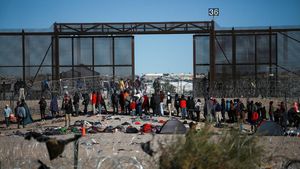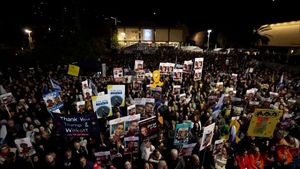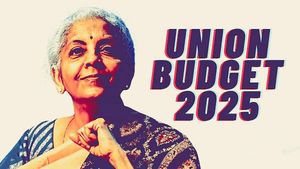The French government is gearing up for what promises to be a contentious debate surrounding the proposed 2025 budget, with Prime Minister François Bayrou at the forefront of this effort. The strategic move to invoke article 49-3 of the Constitution is poised to significantly alter the legislative process as it will allow the government to pass the budget without going through the usual parliamentary vote, effectively bypassing potential standoffs with opposition parties.
On February 3, 2025, the National Assembly will assemble to deliberate on the budget, which has been negotiated through intense discussions within the governmental coalition and particularly through the actions of the Commission Mixte Paritaire (CMP). According to Amélie de Montchalin, the Minister for Public Accounts, the government aims to adhere strictly to the CMP's text. "Our ambition is not to change the text resulting from the CMP," she stated, outlining the risks involved if there were to be additional amendments at this stage. The message is clear: stability and prompt action are of the essence to avoid dire economic consequences.
Despite such ambitions, opposition voices from the left appear increasingly animated, with La France insoumise (LFI) poised to draw up motions of censure against the government should it proceed down the 49-3 route. This reflects growing tensions as the political fabric of France grapples with the significant decisions about public finances and social welfare. The Socialists (PS) and the National Rally (RN) are also watching closely, weighing their options which could lead to increased friction should the budget face defeat.
Bayrou's previous remarks reveal a central narrative: "A country like ours cannot remain without a budget," emphasizing the necessity of swift governance amid challenges. His administration has come under scrutiny as they prepare to navigate this tightrope of political maneuvering. These discussions and subsequent decisions could have far-reaching effects on the financial health of the French nation, with €50 billion worth of budgetary proposals being set forth to bolster economic resilience.
Montchalin has been vocal about the impacts of budgetary stagnation, warning, "if we do not have a budget, one million French citizens will enter income tax brackets, and 18 million will face rising bills." With increasing costs attributed to both climate and economic crises looming, the budget stands as the centerpiece of governmental action. Contrarily, if opposition parties follow through with their threats, it would not only affect governance but could easily spiral the nation’s financial planning and public service provisioning downwards.
Both Montchalin and Bayrou are mindful of the precariousness their administration faces as they brace for parliamentary examination. The political dance involves weighing the necessity of their proposals against the real fear of censure. Bayrou's suggestion to push through this budgetary process with article 49-3 aligns with Montchalin’s caution; she advised, "We are not asking the opposition to join the majority, but rather to see if they wish to continue opposition within functional parameters or lead the country to chaos."
Complications arise with specific provisions within the budget being contentious, especially concerning energy costs and enterprise taxation. Montchalin remarked, "What he says must be heard," considering the vocalized concerns from corporate leaders like Bernard Arnault, who threaten economic stability if the proposed exceptional contributions to large enterprises aren't adequately limited.
Political strategizing continues as the ruling coalition must navigate reactions from its supporting parties without losing ground against growing dissent. Each week brings the risk of surprises, as debates morph from budgetary discussions to broader issues of governance and stability. The specter of earlier government downfalls remains active; Bayrou’s predecessors left amid contentious rejections. Now, his government must demonstrate resilience if it hopes to weather this fiscal storm.
There are pressing questions about the desirability and sustainability of governance without sufficient majority support—could Bayrou potentially find himself facing the same fate as those before him? Beyond internal party dynamics, inflationary pressure and public discontent may escalate, creating additional hurdles to achieving legislative consent.
These formative days will shape the national dialogue about fiscal accountability and responsible governance. For many French citizens, the stakes may not only be political but also intensely personal as they weigh the prospective changes against their daily realities. From public services to tax obligations, clear communication and strategic foresight will be necessary to steer France through this complex political and economic maze.
With all of this at play, the ultimate fate of the 2025 budget remains to be seen. But one thing is clear: the invocation of article 49-3 is not just another legislative tool—it's potentially the key to unlocking the future financial health of France amid uncertain and tumultuous conditions.



